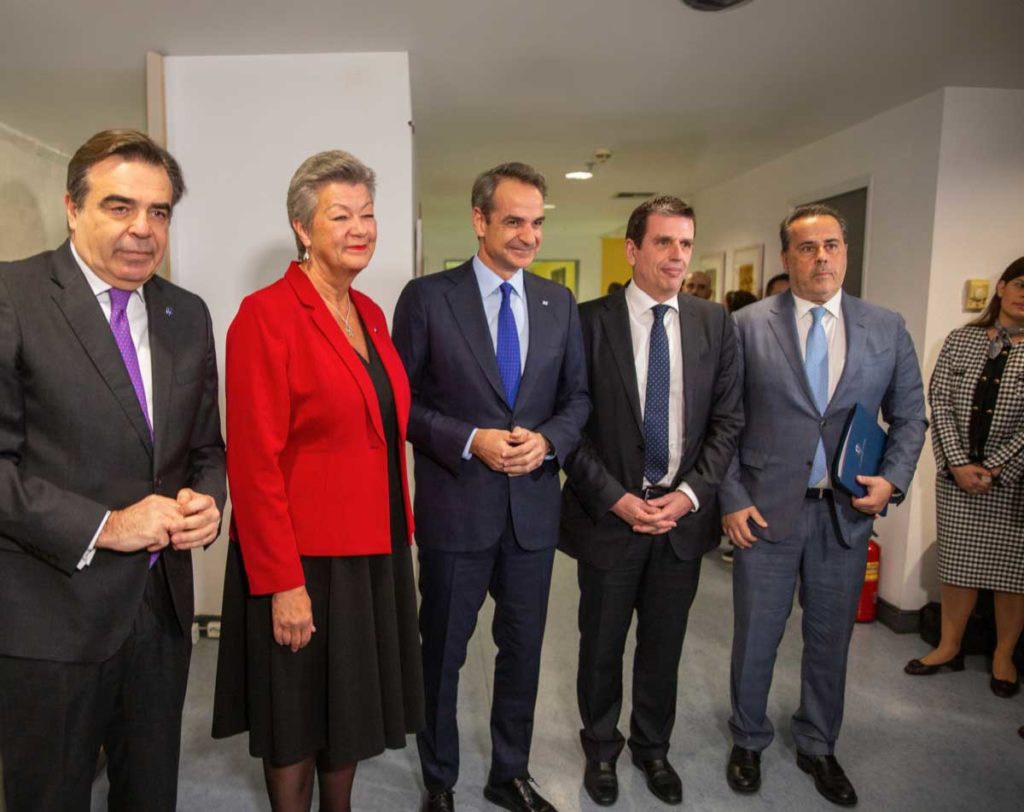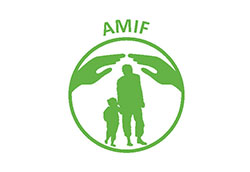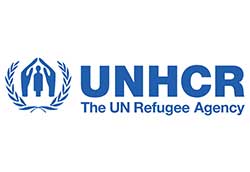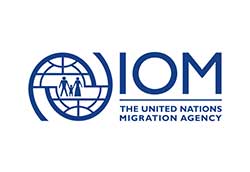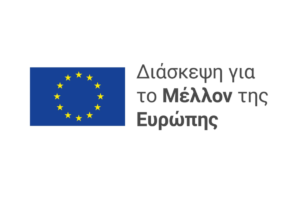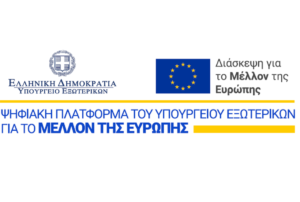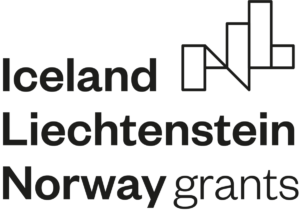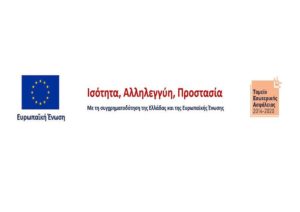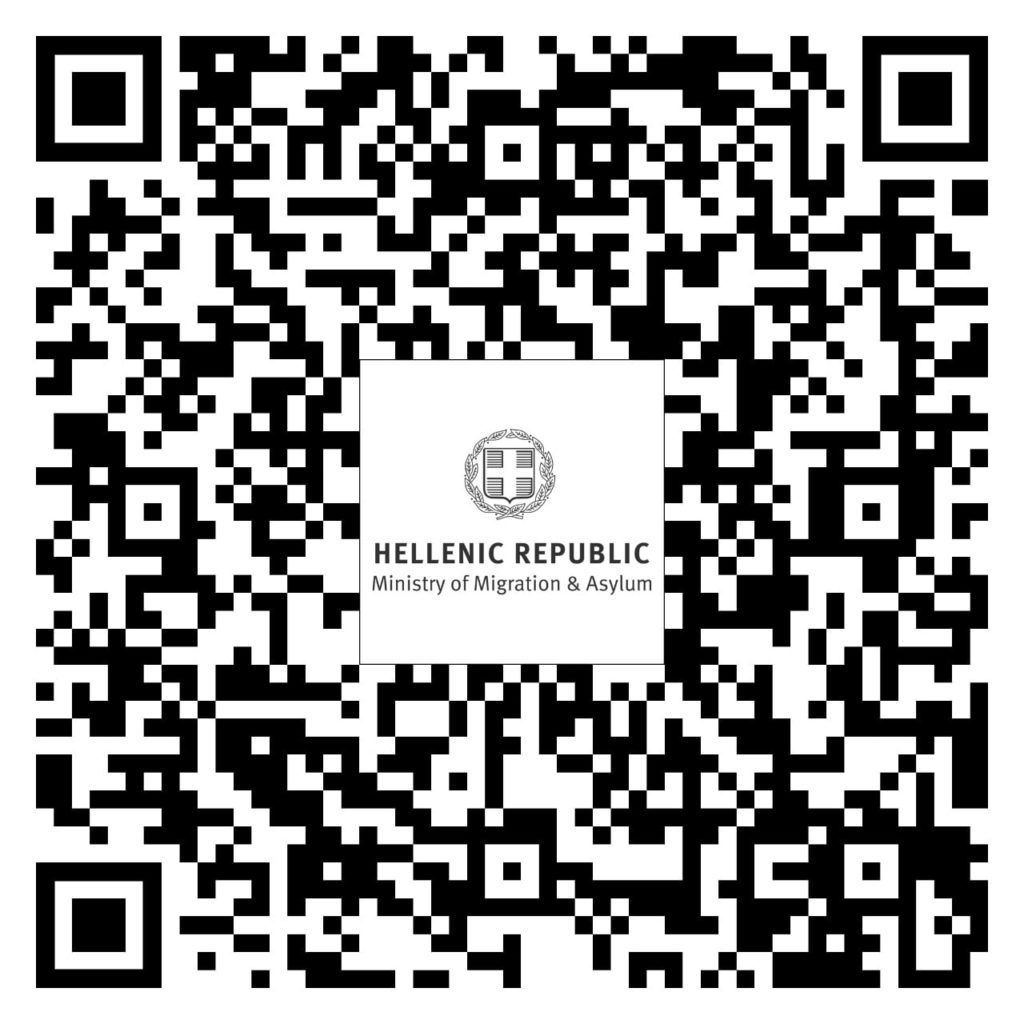The European Commissioner for Home Affairs and Migration, Mrs Ylva Johansson, visited the Ministry of Migration and Asylum on January 8th, and had successive meetings with the Prime Minister Mr Kyriakos Mitsotakis and the Minister of Migration and Asylum Mr Dimitris Kairidis.
Mrs Johansson then participated in a public debate with Mr Kairidis, in the auditorium of the Ministry of Migration and Asylum, entitled "European solutions to the common European challenge of migration."
The Prime Minister opened the debate, while the Vice President of the European Commission Mr Margaritis Schinas gave a short address.
The discussion was followed by a working lunch hosted by Mr Kairidis for Mrs Johansson and the Deputy Director-General (DG HOME) Mrs Beate Gminder.
The lunch was attended by the Minister of Maritime Affairs Mr Christos Stylianides, the Deputy Minister of Migration and Asylum Mrs Sofia Voultepsi, the Secretary General for Migration Policy Mr Patroklοs Georgiadis, and on behalf of the Ministry of Citizen Protection, the Secretary General for Public Order Mr Manos Logothetis.
An inter-ministerial meeting followed in the Ministry of Migration and Asylum, focusing on issues of social integration for legal migrants and refugees, as well as return strategies.
The meeting was attended by the Minister of State Mr Stavros Papastavrou, Ms Johansson, the Minister of Migration and Asylum Mr Dimitris Kairidis, the Deputy Minister of Migration and Asylum Mrs Sofia Voultepsi, the Minister of Education, Religious Affairs and Sport Mr Kyriakos Pierrakakis, the Minister of Social Cohesion and Family Mrs Sofia Zacharaki, the Deputy Minister of Economy and Finance Mr Nikos Papathanasis, the Deputy Minister of Health Mrs Irini Agapidaki, the Deputy Minister of Labour and Social Security Mr Panos Tsakloglou, and the Secretary General of Public Order Mr Manos Logothetis.
A common thread underlying all the discussions was the successful implementation of the Greek migration policy based both on the strict but fair border management, and the development of legal migration pathways, in line with the needs of the Greek economy.
The recent approval of the legislative initiative to provide migrants access to legal employment, by a large majority vote of more than 5/6 in the Greek Parliament, proved that migration does not need to be divisive, but can – with the right policy – be a unifying factor.
Greece has effectively managed the increased migration pressure during 2023, ensuring the safety of both local communities and asylum seekers, successfully avoiding many of the pitfalls encountered in other European countries.
The broader political objective is to safeguard the European idea from the toxic divisions and tensions that migration mismanagement can cause. For this reason, Greece’s successful migration policy is of a wider significance and value, especially in view of the upcoming European elections.
In her statements, the European Commissioner praised the important work that the government of Mr Mitsotakis has accomplished in the crucial area of migration, while she also highlighted her close cooperation with Mr Kairidis.
More specifically, in her statement, Mrs Johansson highlighted the following:
“I am here to acknowledge the significant progress Greece has accomplished in managing migration. During the four years that we have been working together, thanks to the leadership of Prime Minister Kyriakos Mitsotakis, we have seen tremendous progress in managing migration in an organized way.
We are also discussing the challenges we face today, and together with my friend Dimitris (Kairidis), we are showing great leadership initiative when it comes to addressing the new challenges we see in migration.
We are discussing how to move away from irregular arrivals, with closer cooperation with Turkey, how we can intensify returns, ensuring that those who do not have the right to stay are returned to their country of origin, and at the same time, we are investing in legal pathways, legal migration and labour migration – because we need that. Our societies, our labour market, are considerably lacking in workforce – and we need to do this in an organized way.
Thanks to the great achievement that we were able to attain with the EU Pact on Migration and Asylum just before Christmas, we are now in a position of strength, where we need to demonstrate that migration is manageable; and that we can get out of the chaos, get out of irregular arrivals and irregular departures and move to an orderly way where migration is needed and we welcome migrants to join our society.
I have to say that what Dimitris has shown, during this fairly short period that he has been in charge (of the Ministry of Migration and Asylum), is really impressive. The close cooperation and the leadership that he has demonstrated to the Home Affairs Council of Ministers is really impressive. This illustrates that Greece is really at the forefront when it comes to managing migration in a modern way.”
Moreover, Mr Kairidis in a statement pointed out the following:
"I would like to thank the European Commissioner for Home Affairs and Migration, Ylva Johansson, for her kind words.
We have worked very closely with Mrs Johansson over the last few years, and I have personally been working with her for the last six months.
Progress is significant and undeniable compared to where we were in 2019.
We have great challenges ahead of us in the migration field, which, as the Greek Prime Minister explained in detail, is based on two pillars: on the one hand the fight against migrants’ smuggling, and on the other hand the strengthening of legal pathways and orderly migration under conditions and rules needed by our developing and fast-growing Greek economy.
We look forward to cooperating with all European countries, and we believe that migration is an area that can unite us and not divide us. This is important in view of the very crucial European election in a few months from now.
Mrs Johansson's visit is important. We have so much to discuss. There is a very good cooperation between us, also evident in the initiative to facilitate tourist visas for Turkish citizens, which the Commission recently approved with Mrs Johansson’s help; in the increased funding that our country has secured for the management of migration; finally, also in the broader debate, which is fortunately moving in a positive direction with the new Pact on Migration and Asylum. A great achievement for Europe and especially for Ylva Johansson.
We are very thankful that she is here, for all this journey we have undertaken together and will be continuing in the future.
As mentioned, Greece, despite being at the forefront of migratory pressure, has proven more successful than most other countries, both in the central Mediterranean route, and in the Western Balkans. Today, Greece has, in a sense, a leading role in the EU Council and in Europe overall, as an example of a two-pillar policy: against the illegal, on the one hand, and on the other hand in favor of the legal.” Mr Kairidis concluded that “in a Europe that is really divided by this issue, Greece shows that we can have an effective European policy on migration and asylum, based on European values.”
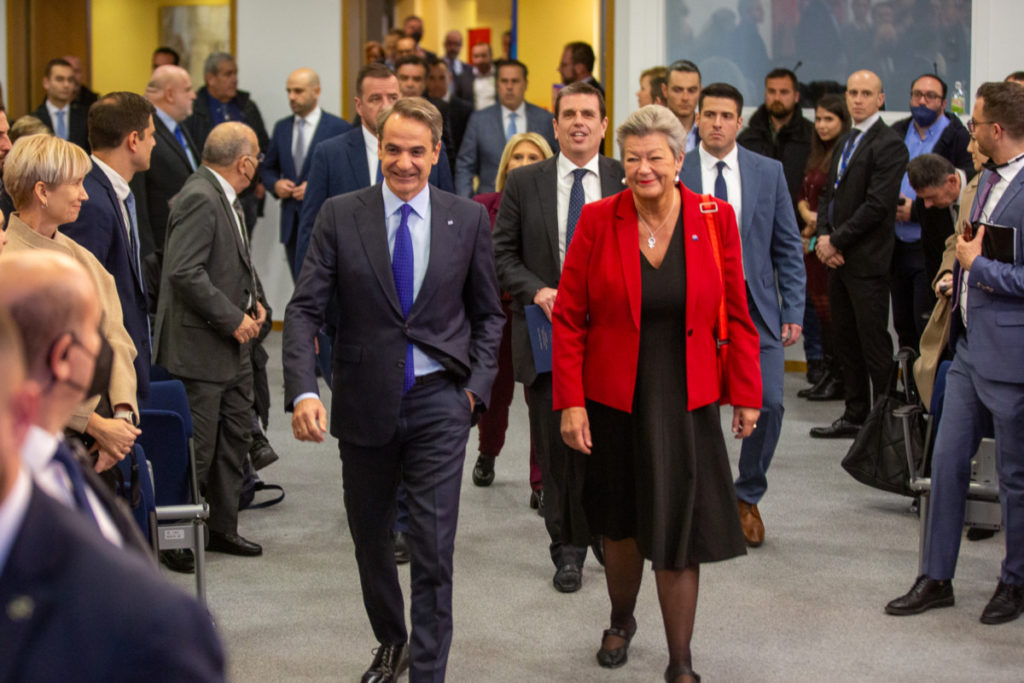
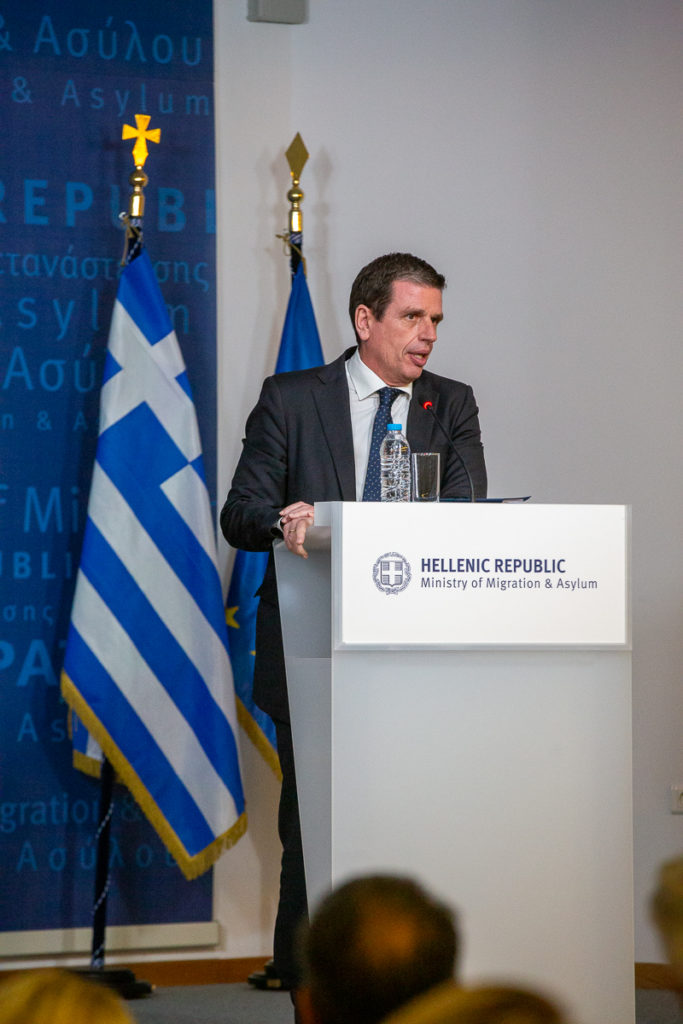
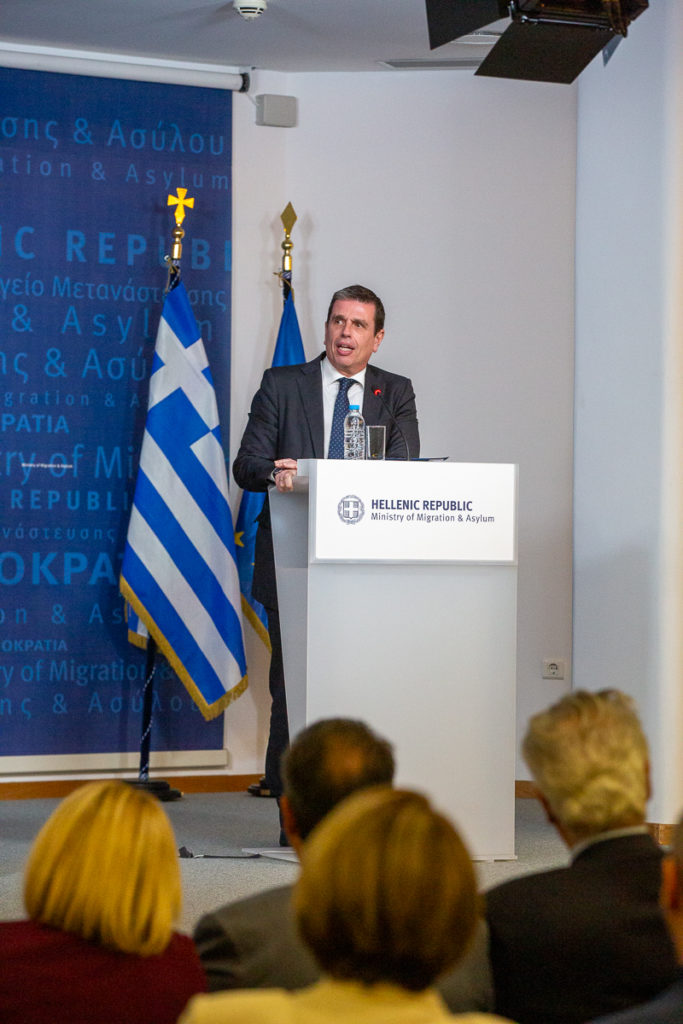
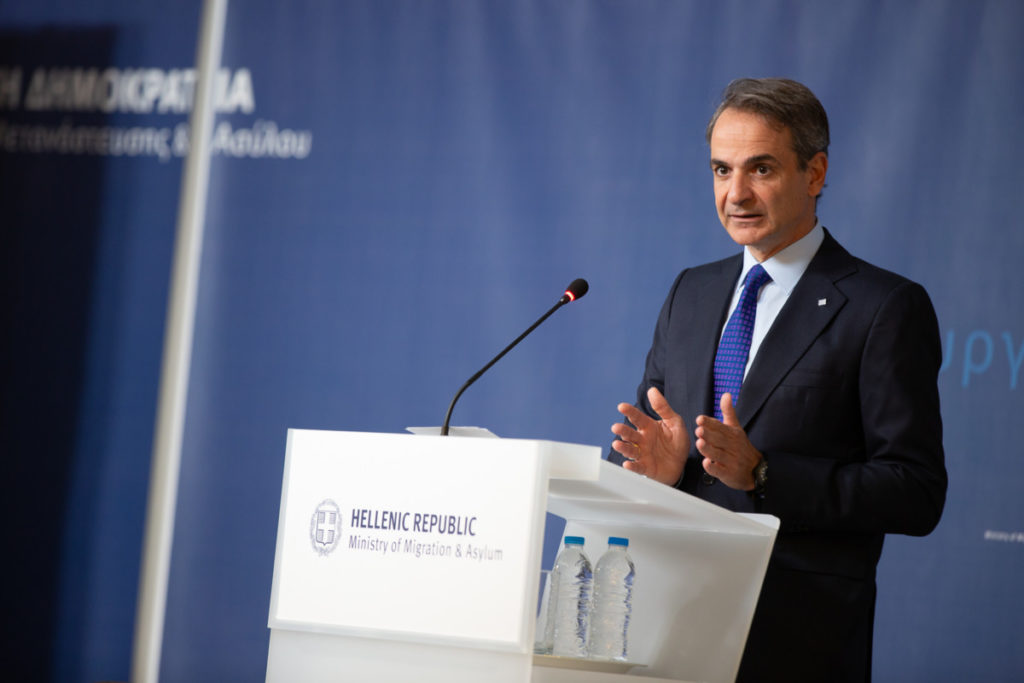
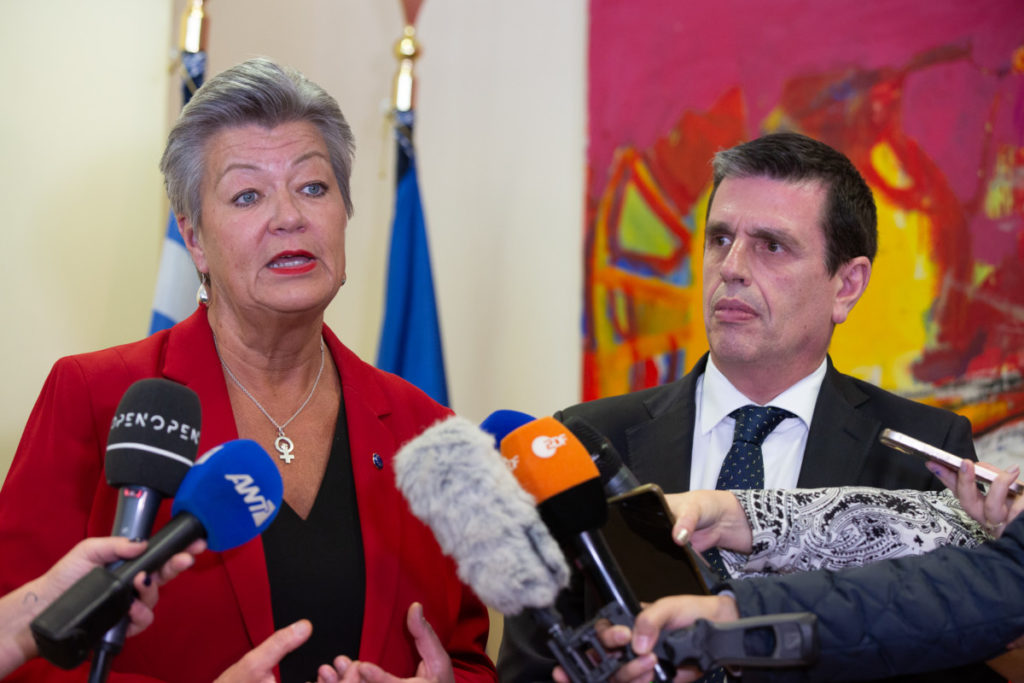
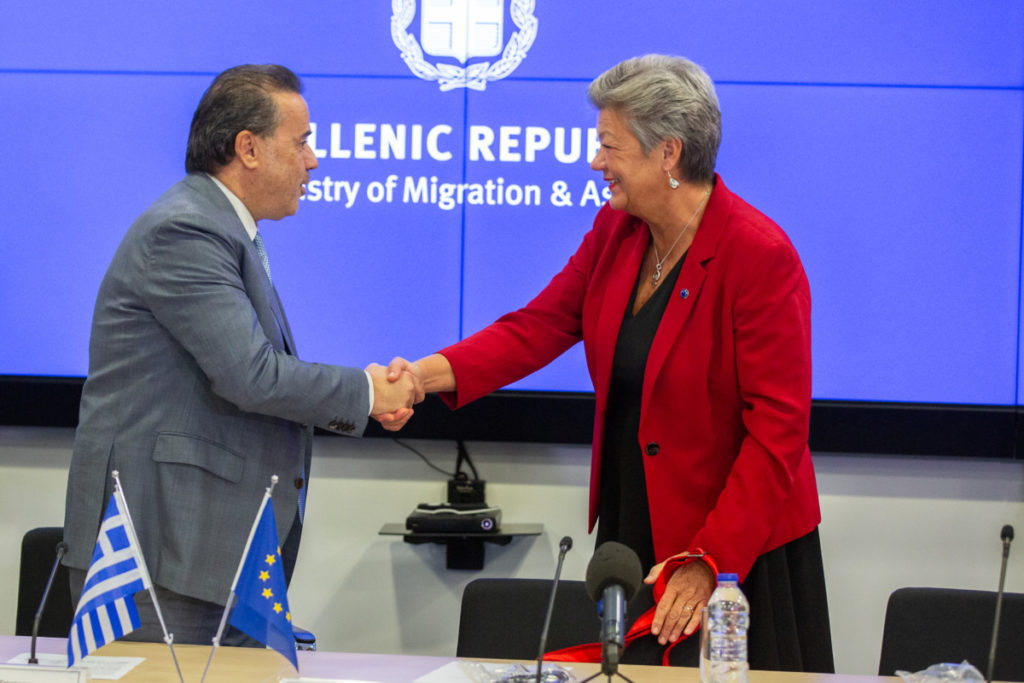
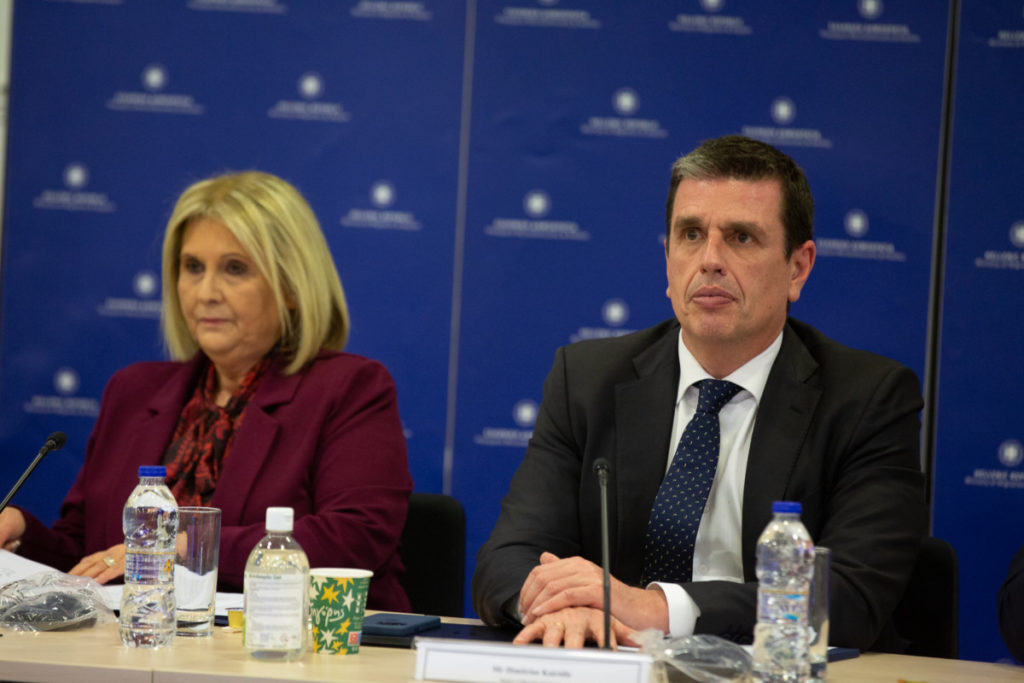
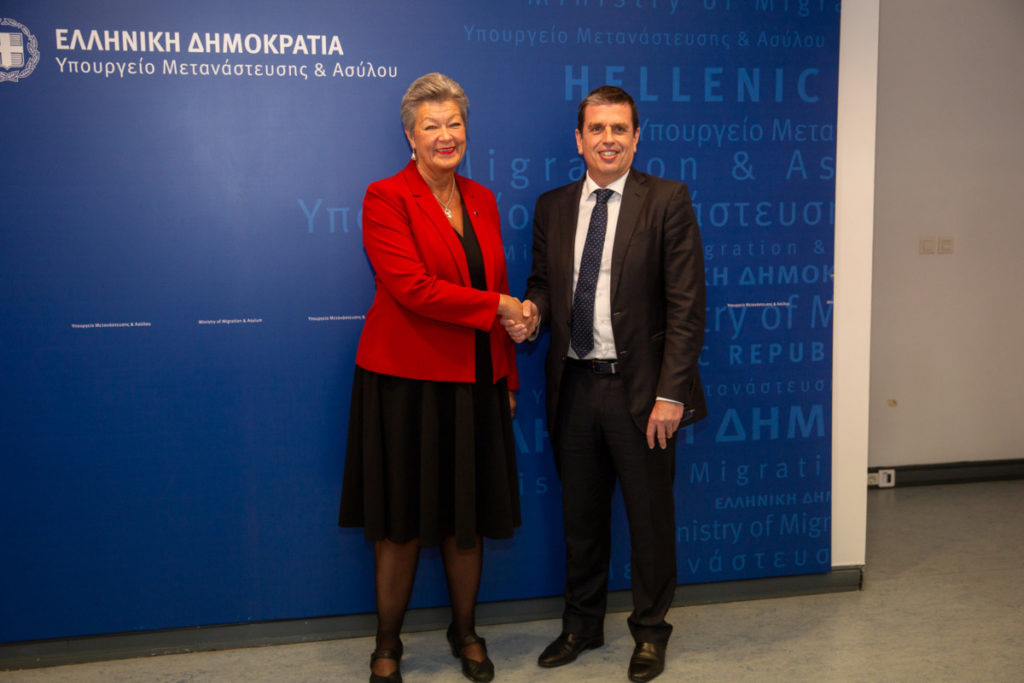
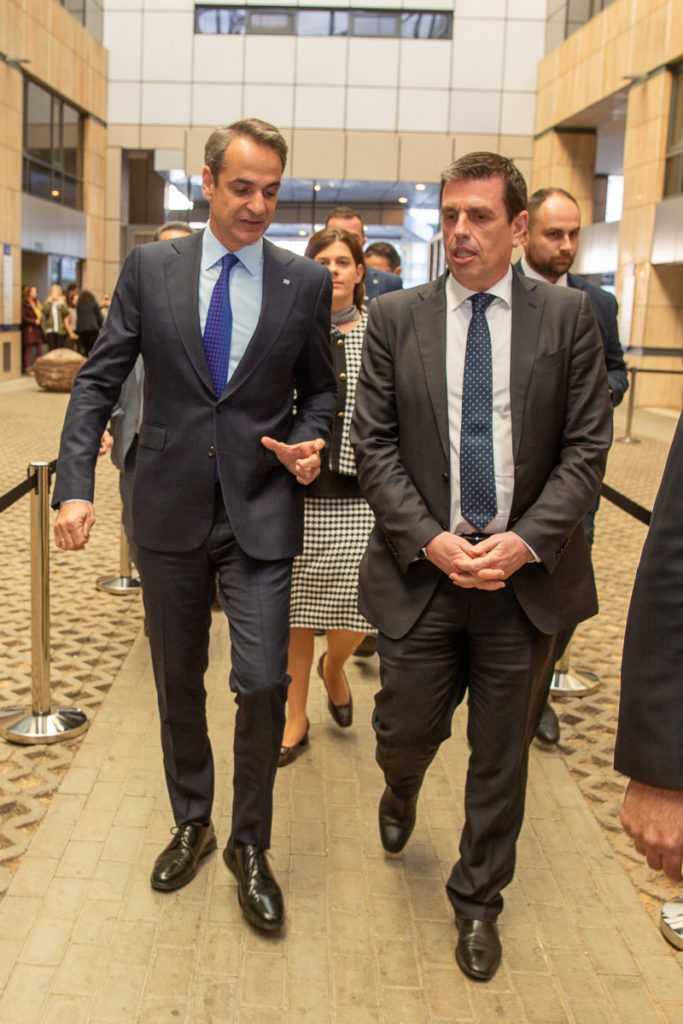
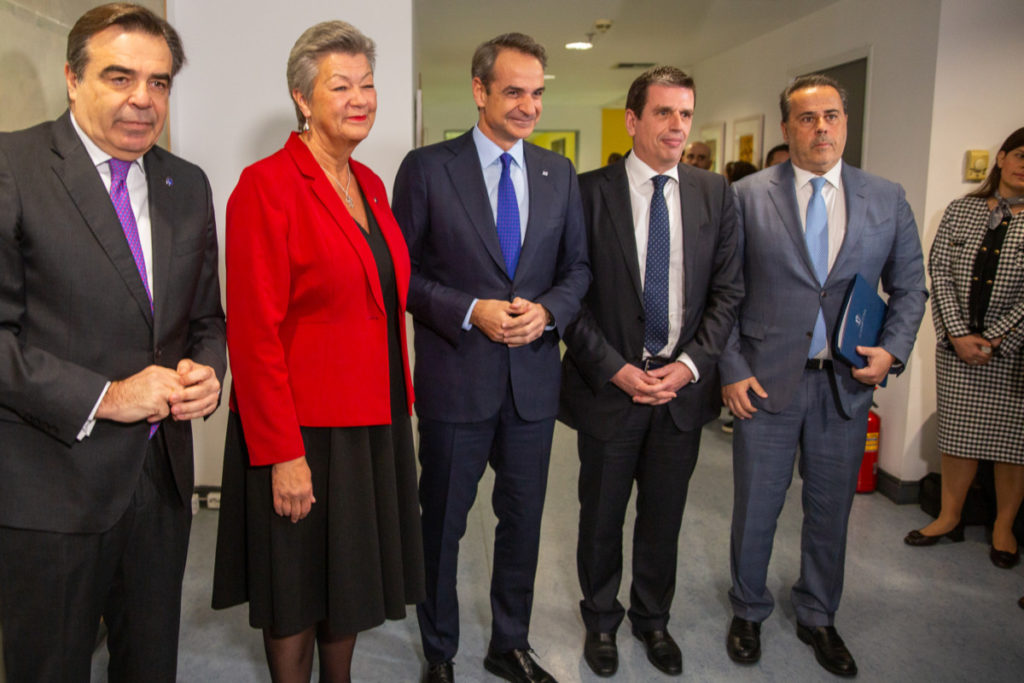

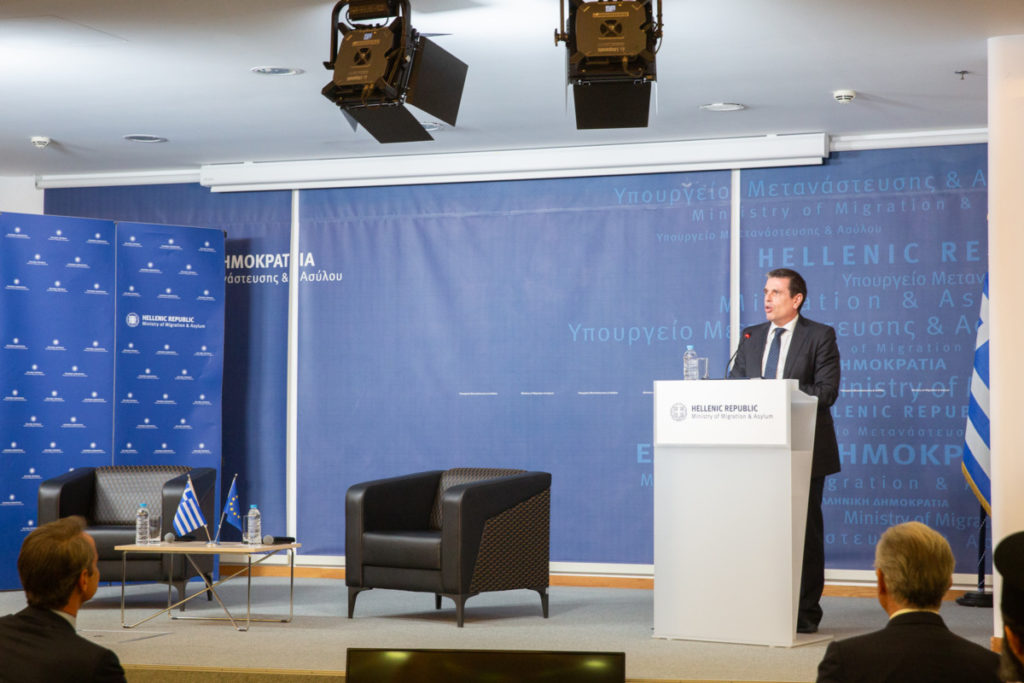

 Secretary General for Reception of Asylum Seekers
Secretary General for Reception of Asylum Seekers